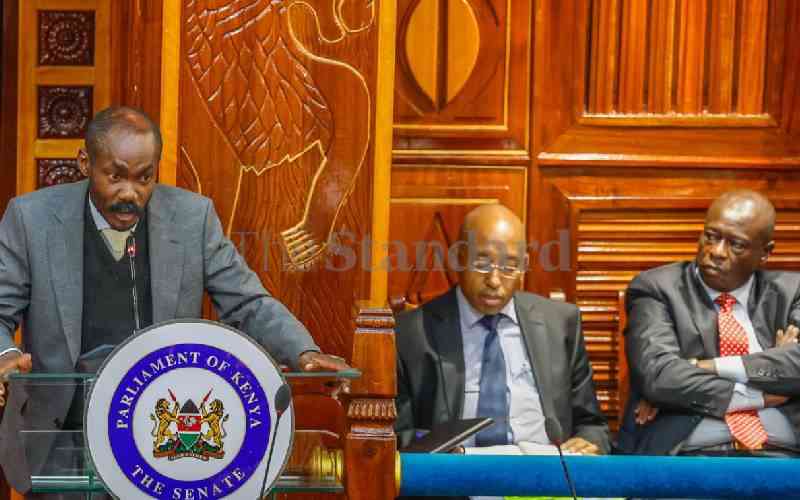By Abdikadir Sheikh
In the last few weeks there have been reports that parliaments, both at the county and national level, have been ignoring court orders. This topic cannot be discussed without looking at the background and relation between Parliament and the courts.
Separation of power was done to avoid its concentration in one place. Even though the roles and functions of each arm of the government are clearly cut out, the boundary between law courts and the jurisdiction of the houses of Parliament in matters of privilege has been in dispute for a long time. In old democracies, this dispute seems to be relatively settled.
With 47 new county assemblies, disputes between courts and parliaments are inevitable. However, our courts seem to be interfering and trying to stop the running of parliamentary business and going against established principles. The problem can be linked to the Judiciary’s new found independence and its lack of adequate knowledge of privileges and immunities of the assemblies.
Parliamentary privilege is a right enjoyed by members of assemblies without which they would not discharge their functions.
This exceeds those possessed by other bodies or individuals. Some privileges rest solely on the law and customs of parliament while others have been defined by statute.
These privileges include freedom of speech, freedom from arrest and exclusive cognizance (jurisdiction). In England, the Courts have recognised the need for an exclusive parliamentary jurisdiction as a necessary bulwark of the dignity and efficiency of Parliament.
In exclusive cognizance, every assembly and Parliament has the right to be the sole judge of the lawfulness of their own proceedings, and to settle or depart from their codes of procedure. This is equally the case where the assembly in question is dealing with a matter, which is finally decided by its sole authority, such as an order, or a resolution like the one passed by the County Assembly of Embu. The Embu County Assembly and no one else can only rescind the resolution.
More than half the speakers of the county assemblies are lawyers and firm believers that court orders have to be obeyed regardless of the legality or merit. However, when courts fail to observe the privileges and independence of parliament to run their business, assemblies will have no option but to carry on. This is the approach that is desirable and expected from our courts – to respect parliamentary privileges and observe the separation of powers. Courts should not act so as to cause conflict with assemblies and Parliament.
Parliamentary privileges are absolute and exclusive.
 The Standard Group Plc is a
multi-media organization with investments in media platforms spanning newspaper
print operations, television, radio broadcasting, digital and online services. The
Standard Group is recognized as a leading multi-media house in Kenya with a key
influence in matters of national and international interest.
The Standard Group Plc is a
multi-media organization with investments in media platforms spanning newspaper
print operations, television, radio broadcasting, digital and online services. The
Standard Group is recognized as a leading multi-media house in Kenya with a key
influence in matters of national and international interest.
 The Standard Group Plc is a
multi-media organization with investments in media platforms spanning newspaper
print operations, television, radio broadcasting, digital and online services. The
Standard Group is recognized as a leading multi-media house in Kenya with a key
influence in matters of national and international interest.
The Standard Group Plc is a
multi-media organization with investments in media platforms spanning newspaper
print operations, television, radio broadcasting, digital and online services. The
Standard Group is recognized as a leading multi-media house in Kenya with a key
influence in matters of national and international interest.








